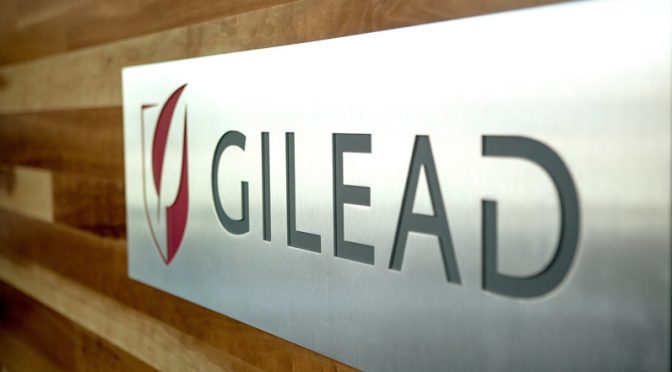Merck & Co.’s $200 million jury verdict against Gilead Sciences Inc. was voided in a patent dispute over a breakthrough for hepatitis C because of misconduct by a witness at the companies’ trial.
A federal judge concluded Monday that dishonest and duplicitous testimony by a retired Merck scientist before and during a March trial played into the jury’s finding that the company was responsible for early discoveries that led to the development of Gilead’s Sovaldi and Harvoni medicines.
The scientist “intentionally fabricated testimony” and Merck supported his “bad faith conduct,” U.S. District Judge Beth Labson Freeman in San Jose, California, said in her ruling.
The reversal of the fifth-largest U.S. verdict this year vindicates Gilead in its refusal to share royalties with Merck on the more than $20 billion revenue the hepatitis C drugs generated from 2013 through 2015 in the U.S. The Foster City, California-based company’s sales have started to slow this year as competition for the liver disease market intensifies among drugmakers.
“This is a nice little bump for Gilead who’d already accounted for the $200 million,” said Bloomberg Intelligence analyst Asthika Goonewardene. “But of course, this is a big win and will be beneficial to Gilead and how they can claim ownership of the drug in the long run.”
Merck vowed to appeal Monday’s ruling, saying it “does not reflect the facts of the case.”
“In its decision, the jury recognized that patent protections are essential to the development of new medical treatments,” the company said in an email. “The compounds and methods at issue in this case facilitated significant advances in the treatment of patients with HCV infection, and achieving these advancements required many years of research and significant investment by Merck and its partners.”
Gilead said it “has always believed Merck’s patents are invalid and unenforceable.”
“We are pleased the court has ruled in Gilead’s favor and determined that Merck’s patents are unenforceable against Gilead, and therefore, Merck is not entitled to recover any damages,” the company said in an email.
Labson Freeman re-opened the case in April after Gilead alleged that ex-Merck scientist Phil Durette gave conflicting statements about his participation in a key phone call some 15 years earlier when the drug’s basic composition was first presented to Merck.
Durette initially said in a pretrial deposition he wasn’t on a phone call in which secrets about the compound’s basic chemistry were discussed while Merck was exploring a take-over of Pharmasset Inc., a company that was later acquired by Gilead. When testifying to the jury after checking his notes, Durette admitted to playing a role in the meeting.
“Dr. Durette’s lying at his deposition, recanting that testimony at trial without proper prior notice to Gilead, and further untruthful testimony at trial all support the court’s conclusion that Merck did intend to deceive Gilead and the court,” the judge wrote.
She said Merck’s actions were “even more egregious” because Durette was acting as the company’s patent attorney.
Merck’s victory at trial had set the stage for it to seek future royalty payments from Harvoni and Sovaldi, which sells for $1,000-a-pill in the U.S., before discounts and rebates.
While Gilead continues to dominate the market, the lull in its hepatitis C treatment revenue opened the door to Amgen Inc. retaking its place as the world’s top biotech firm by market capitalization.
The case is Gilead Sciences Inc. v. Merck & Co., 13-cv-04057, U.S. District Court, Northern District of California (San Jose).
Full Article – http://www.theindianalawyer.com/mercks-patent-win-over-gilead-reversed-over-false-testimony/PARAMS/article/40559






